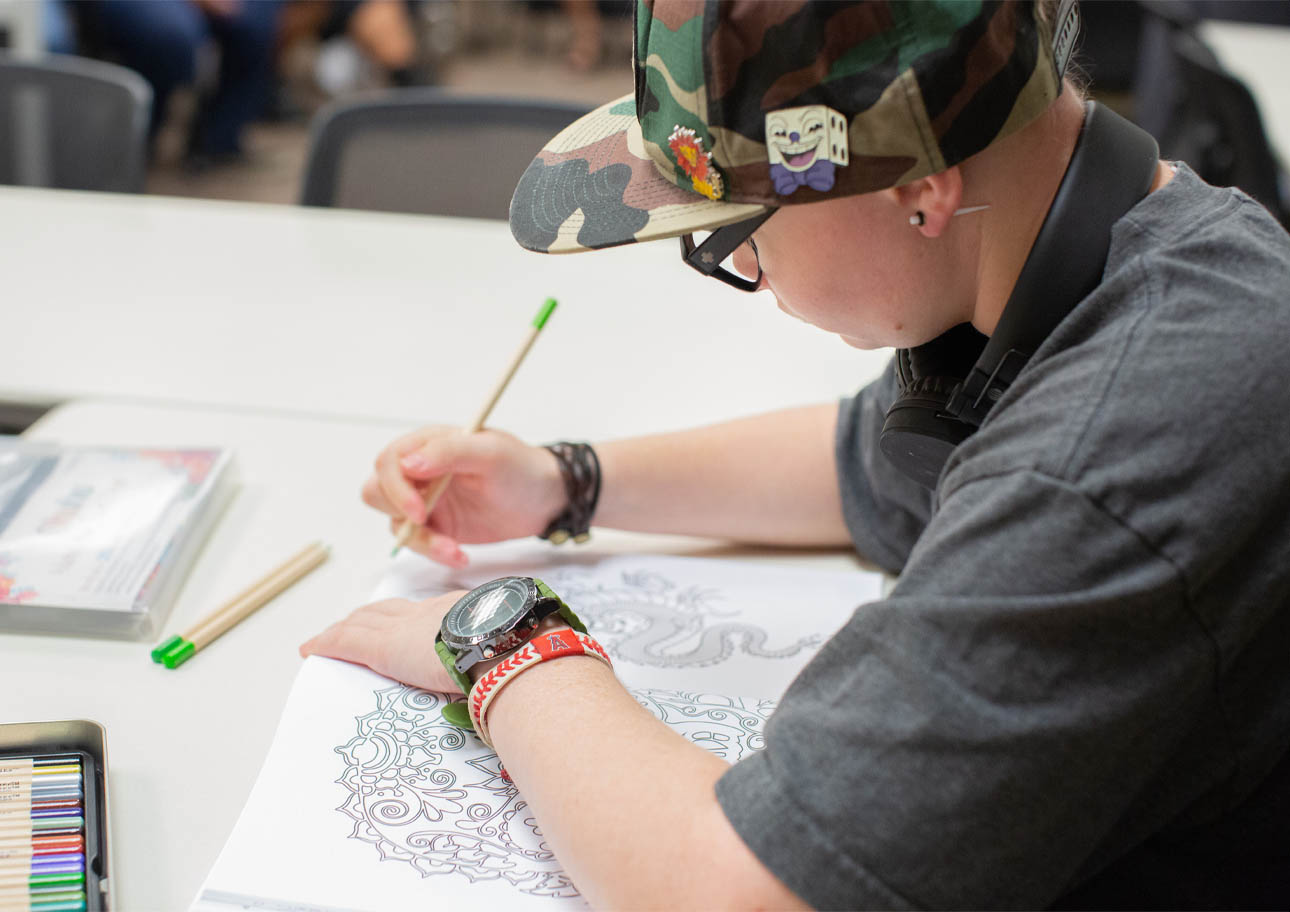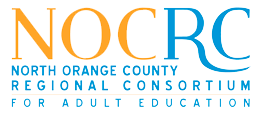
March 06, 2019.
According to the latest data from the California Department of Education, approximately 97,000 California public school students were diagnosed with Autism Spectrum Disorder (ASD) in 2018. That’s a 700 percent increase since 2001.
The reasons for this dramatic rise are yet unknown, but may include a myriad of factors, such as the broader definitions of ASD and improved screening practices.
While K-12 schools across the country have been adopting practices to address the needs of this growing population, North Orange Continuing Education (NOCE) and the North Orange County Regional Consortium (NOCRC) are at the forefront of providing services that benefit all students, especially post-secondary students living with ASD.
“There’s this huge population of kids with Autism Spectrum Disorder coming up through the K-12 system that wasn’t there before,” explains NOCE Disability Support Services (DSS) Counselor Casey Sousa. “While it is not unusual to have labs or ‘sensory rooms’ at K-12 schools, it’s still generally not an option in post-secondary schools and colleges.”
NOCRC’s ARISE Lab is leading the charge to change that.
NOCRC’s DSS Workgroup developed ARISE, which stands for Academics, Relationships, Independence, Self-Advocacy, and Emotional Health. The lab itself, which was established on NOCE’s Anaheim Campus in late 2016, provides a physical space where students with ASD can decompress, seek guidance, and socialize with their peers. The ARISE Lab started as a place to serve the needs of students with ASD, however, it soon became a tool utilized by a variety of students with different needs.
“Many people can filter out the things we don’t want to pay attention to, but a student with ASD might hear every tapping shoe or clicking pencil and not be able to filter these things out in order to keep their attention focused,” explains Sousa, who has an M.S. in Counseling with an emphasis in Marriage and Family Therapy from California State University, Fullerton.
“You think about a college campus and all the sights, sounds, smells, and you can see why this might be a struggle for someone who has attention or sensory processing issues.”
The space that Sousa and her colleagues designed includes two “low-stimulation” cubes with wing-back chairs, a small computer lab, and a station with decompression tools such as art supplies, stress balls, fidget cubes, headphones, and various other items. The lab is also home to an on-site academic counselor and staff members for students who need guidance or just want someone to talk to.
“A lot of students make the ARISE Lab their first stop when they arrive to school,” says Sousa. “Some want to just sit, others want to talk, but they come here, orient themselves, mentally prepare for school, and then go to class. Routines can be important to people with ASD and it’s nice to see that some of them feel safe enough to make us part of their routine. It’s rewarding to provide this service to them.”
In addition to providing a sensory-friendly space, the ARISE Lab employees also help students who need special accommodations.
“Our first objective is always to figure out what a student’s needs are, and then we look for a solution,” says Sousa. “We had one student who was having a really hard time with [classroom] noise which was leading to explosive behaviors. The solution was pretty simple. We gave him some earplugs to cut out the noise and had him sit at the front of the class so he could better hear the professor.”
To date, the lab has helped more than 150 students and has been such a success that NOCE has added their own “mobile” ARISE Labs at the Wilshire Center and Cypress Center. Sousa is working with administration to find these new labs permanent homes and is excited about the future.
Although the lab was developed for students with ASD in mind, students who simply feel anxious or overwhelmed can access the free and supportive lab. The counselors have developed a peer-mentoring program.
“NOCE serves approximately 30,000 students annually, which means there are potentially a lot of students who could use our services,” says Sousa. “So far, the majority of the students we serve are from DSS Program classes, but over the last 6-8 months, more students from other NOCE programs are starting to access the lab, and that’s rewarding.”
The ARISE Lab has been so successful, it was honored with a 2019 “Excellence in Continuing Education Award” from the Association of Community and Continuing Education (ACCE), the professional association dedicated to supporting California’s noncredit community college and community services programs.
“I didn’t realize how much of a privilege going to school was when I was young,” reflects Sousa. “It’s exciting to see how hard our students are working to show others that they can be independent and overcome obstacles. Everyone at NOCE seems to feel the same way; we all want to see these students succeed.”
Sousa and the DSS Workgroup are excited about what the future holds and remain committed to helping all students by providing them with the tools they need to reach their educational and career goals.
For more about the ARISE Lab or the DSS Workgroup, contact Ivan Stanojkovic, DSS Special Projects Manager, at 714-462-4554.
